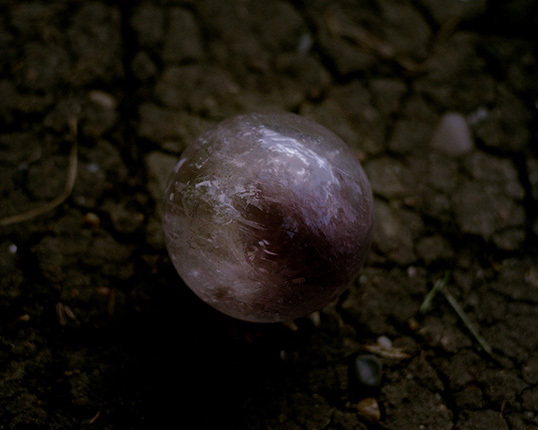The designation of these deaths as volitional was the result of research by Vasily Grossman, a biologist of Polish extraction. There were too many questionable details concerning the deaths to call them natural. By analyzing fetuses’ brainwaves and synapses, along with fluctuations in their limbic systems, Grossman was able to uncover that their deaths had been by choice.
Why were fetuses choosing death? Were fetuses beings capable of consciously making such a judgment? No one was able to give satisfactory answers to such questions. Was it because Earth had reached its limit with environmental change? Was Gaia’s signal affecting the sensitive children’s brains? Could this be considered suicide—an obstinate refusal to prolong humanity? Was this natural selection?
It was clear that neither spermatozoa nor eggs could make decisions. Fertilization posed no difficulty. Then what was occurring between fertilization and birth? Though Grossman immersed himself in research on this question, the year he turned fifty-five he was struck by lightning and met his end. Though this occurred in a field in Scotland where lightning strikes were common, many people believed he had been the object of divine retribution; that Earth had punished him for attempting to defy the tides of nature. Faith in religions, cults, and pseudoscience swelled, and people scattered across the globe. A class of people who postulated humanity’s extinction emerged. That species which becomes predominant, whatever lifeform it may be, inevitably faces extinction. The belief that humanity must continue was baseless arrogance.
Pregnancies without births, dying fetuses, and the vicious resistance to life were too devastating for parents to overcome. Pregnancies dwindled, and among those who ended up pregnant, many aborted. People grew old and Earth’s population dropped exponentially. It felt as though natural disasters hit more frequently than ever. Despite research showing that, in the grand scheme of history, natural disasters had not worsened, people felt that Earth was trying to extinguish humanity. In line with population decline, the environment gradually began to stabilize. Global warming’s progression came to a halt, and desertification slowed. Fetuses, however, still refused to be born.
When Earth’s population had dropped to less than one-tenth of its original figure, Yekaterina Grossman, daughter of Vasily Grossman and a biologist belonging to the last generation of humanity, proposed an idea. If Earth was sending signals to the brains of fetuses, thus denying their births, couldn’t leaving Earth enable childbirth?
It was an eloquent yet compelling pronouncement. There was absolutely no scientific basis to be found, but following the wishes of Richard Branson, Virgin Atlantic poured all its resources into Yekaterina’s idea.
Yekaterina and her husband, Erick, became pregnant a year after the project launched. They named their child Vasily Grossman Jr., after her father. Two days later, the couple, along with two colleagues, departed Earth. There was no way of knowing how far Earth’s influence would reach; they had to get as distant as possible.
Having left Earth at the fastest possible velocity, they found themselves arriving somewhere not far from Saturn’s moon Enceladus. The massive ball of ice looked like a cavity drilled in a pitch-black cave. If we can just thread that hole, we’ll stand on illuminated land, Yekaterina thought. She felt the baby kick; its birth was imminent.
But he was not born. Vasily Grossman Jr. chose not to be born. After natural birth failed, they attempted a cesarean, but the child violently protested. Yekaterina’s organs suffered damage; both she and Vasily died. Despondent, one of their colleagues aboard the ship, John B. Freeman, took his own life. Erick, alongside the last survivor, Kim, reoriented the ship towards Earth. They weren’t certain they would make it back, but they had to return. They had a responsibility to report the results of their experiment.
Their ship went adrift en route to Earth. The navigation system malfunctioned, but without John they were unable to fix it. Luckily, the ship was engineered to last decades. Erick and Kim considered all means and methods for returning to Earth.
Their arrival on Earth came twenty-two years later. They chose to abandon ship and ride escape pods, plunging into the Atlantic. Earth was astonishingly calm. After coming ashore on a Florida beach, what greeted them in the city was silence, stillness.
“There must be others still alive,” said Kim. “Our generation is nearing their sixties at most. They’ve got to be out there.”
But to Erick this all felt delusional. There was no one on Earth. Earth had learned how to protect itself. Humanity had done all it could. It was now better not to be born. Erick pulled out a gun and aimed it at Kim’s head.
“I’m with child,” Kim said, placing her hands on her stomach. They had had sex multiple times aboard the ship, but they neither wanted nor sought to get pregnant. It was too late; Erick stuck the gun in his mouth and pulled the trigger. Kim buried his body on a soft sandy beach. She began living out of an abandoned Florida hospital. Kim named her baby Yekaterina and called it Katya. She thought that if Katya didn’t want to be born then they could die together. But even if Katya were to be born, what would she be able to do on her own? Humanity would go extinct regardless. But Kim wanted to ask, of her child and of Earth: Why have you given up on being? Is there no value in living? What meaning does life have?

